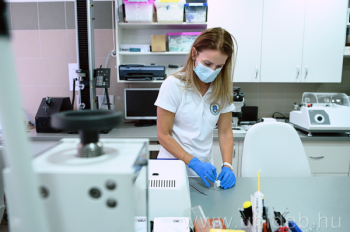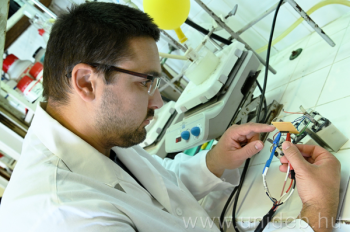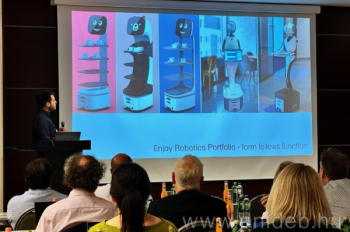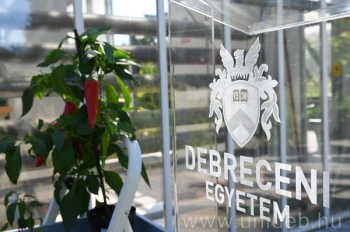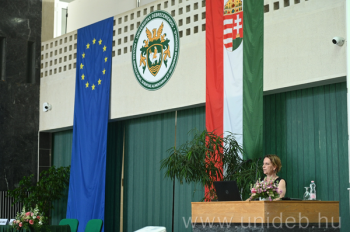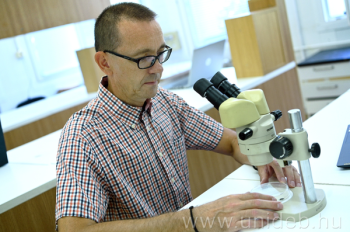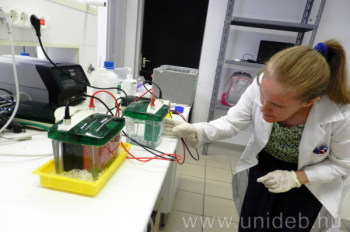Dental fillings and adhesives, including special bulk-fill composites, have been investigated by manufacturers in a recently completed research project at the University of Debrecen's Faculty of Dentistry. The work of the research team was recognised by the publication award of the Gróf Tisza István Foundation for the University of Debrecen.
Hírek Research címkével
Researchers at the Faculty of Science and Technology of the University of Debrecen have developed a prototype of an environment-friendly, high-performance, rechargeable zinc-air battery. This new type of energy store is based on cellulose and uses biodegradable materials as additives and membranes. Its development is in the scale-up phase.
Regő Baráth Benjámin reported on the results of his research on human placental macrophages at the 12th Annual JHAC Research Symposium at the Johns Hopkins University All Children's Hospital in the United States. The sixth-year medical student was the youngest speaker at the congress.
Beijing University of Agriculture and the University of Debrecen continue to broaden the basics of their cooperation. These two institutions have been working together in the field of biological plant protection and pest management for more than two decades, and their joint research and education activities will soon be extended to additional academic fields. The relevant agreement was signed on Thursday by the leaders of the two universities in Debrecen.
As the experts at the summit of NeurotechEU (which was held in Turkey, and where the University of Debrecen was also present) concluded, artificial intelligence and robotics would definitely bring about huge changes that we are not yet fully prepared for.
In the framework of the HUNOR - Hungarian Astronaut Program, researchers from the University of Debrecen are working on the development of systems for food production in long-duration space missions. Experts from the Faculty of Agriculture, Food Science and Environmental Management are working with indigenous, home-bred pepper varieties to enable astronauts to grow and eat fresh, juicy and crunchy vegetables with zero emission during space missions.
Plant memory and its potential to be exploited, salinization affecting the agro-ecosystem and the food safety implications of metal contamination were among the topics discussed at an international conference on sustainable and innovative solutions for agriculture and food industry at the University of Debrecen. The conference, organised for the first time by the Faculty of Agriculture, Food Science and Environmental Management, was attended by more than 100 experts and focused on the theme "One Health".
The complex, multi-structured society of wild horses and its changes have been studied using high-resolution aerial imagery by Hungarian researchers, including specialists from the University of Debrecen, in a recently finished multi-year study. The results were recently published in the prestigious international scientific journal Nature Communications.
Experts from UD were involved in an international project, the findings of which have been published recently in a prestigious journal, Nature Communications. The research was especially important because understanding the global changes caused by urbanisation helps us develop effective measures to mitigate the impact of urbanisation on ecological systems.
Research at the University of Debrecen's Faculty of Pharmacy is showing promise in the development of new active ingredients to prevent sudden cardiac death and inhibit the proliferation of cancer cells.
